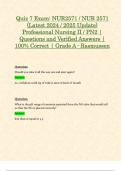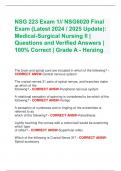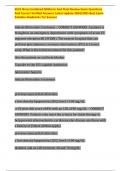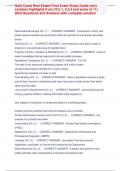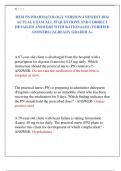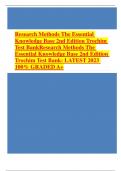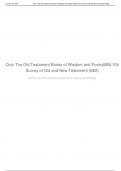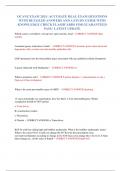Exam (elaborations)
Test Bank for Basic Geriatric Nursing 8th Edition by Patricia A. Williams 2023 Chapter 1-20 | All Chapters with Correct Questions and Answers/ A+
Test Bank for Basic Geriatric Nursing 8th Edition by Patricia A. Williams 2023 Chapter 1-20 | All Chapters with Correct Questions and Answers/ A+
[Show more]




